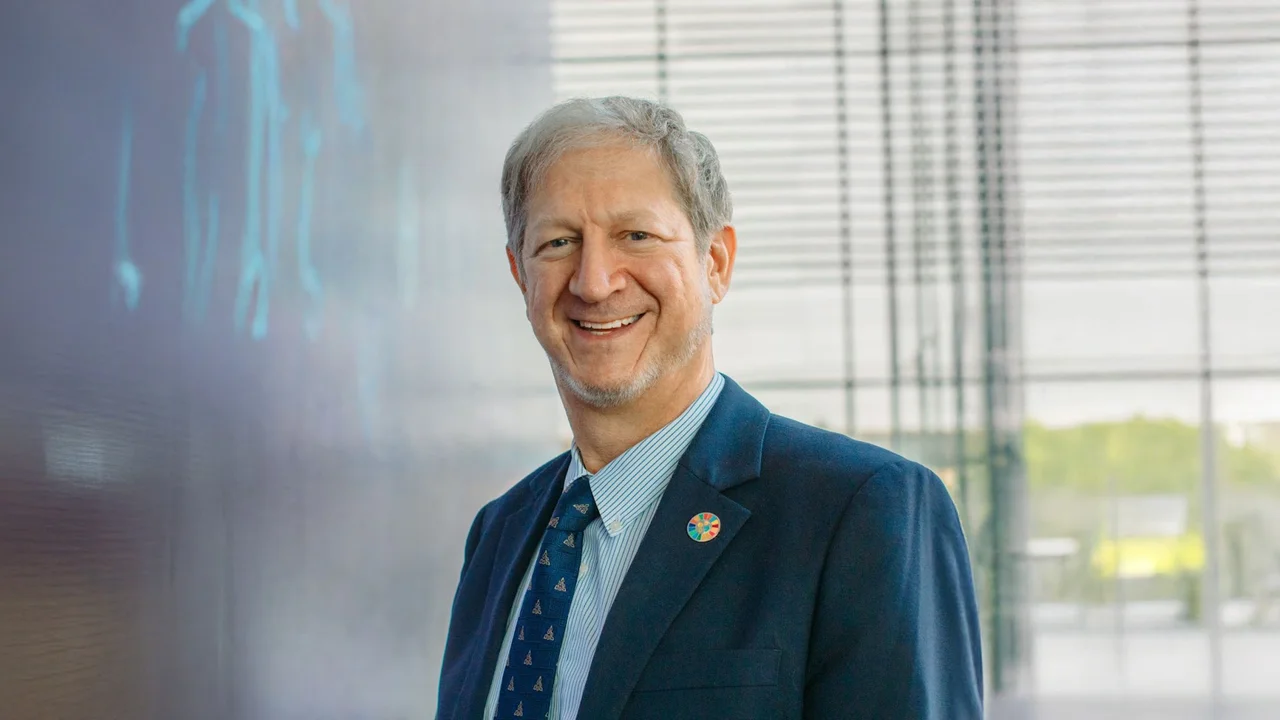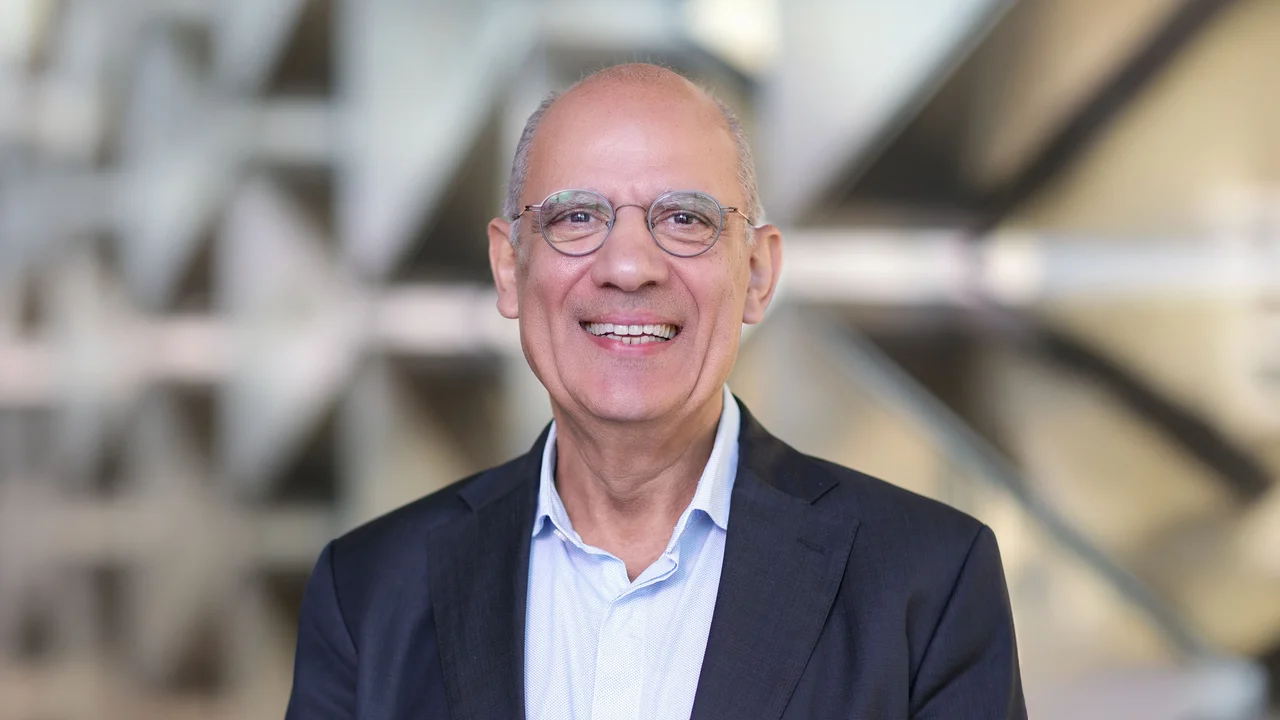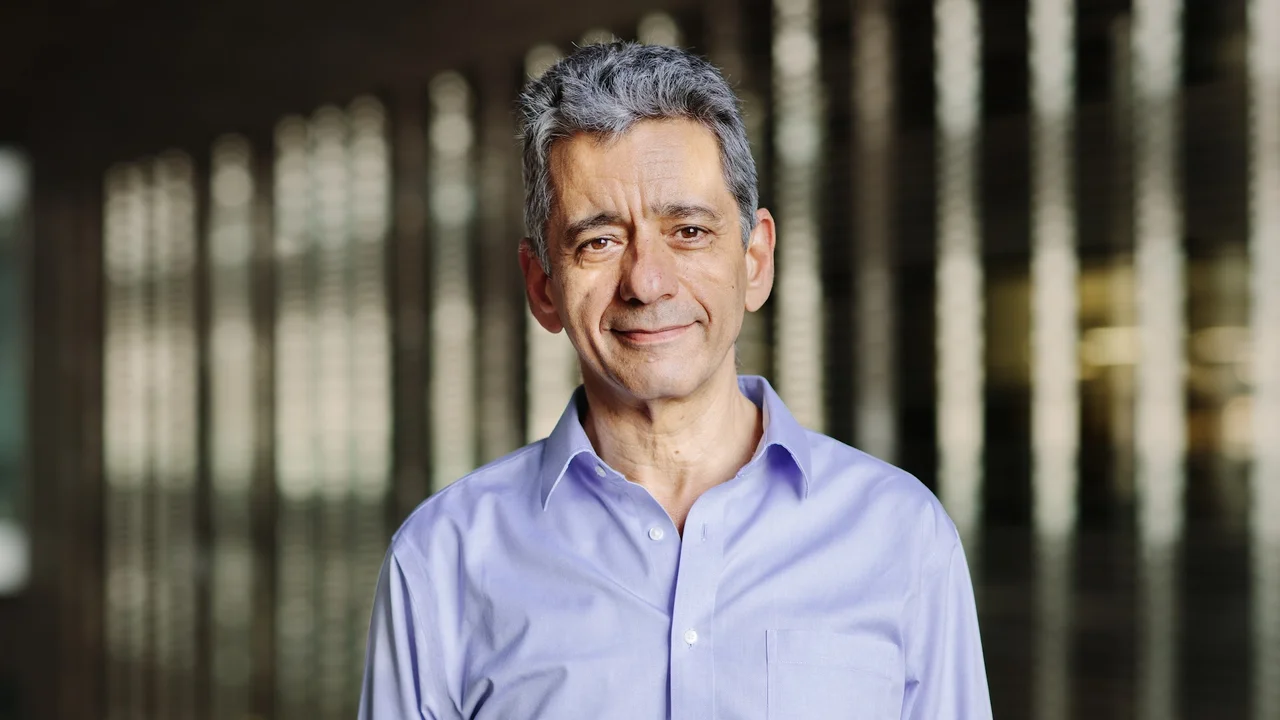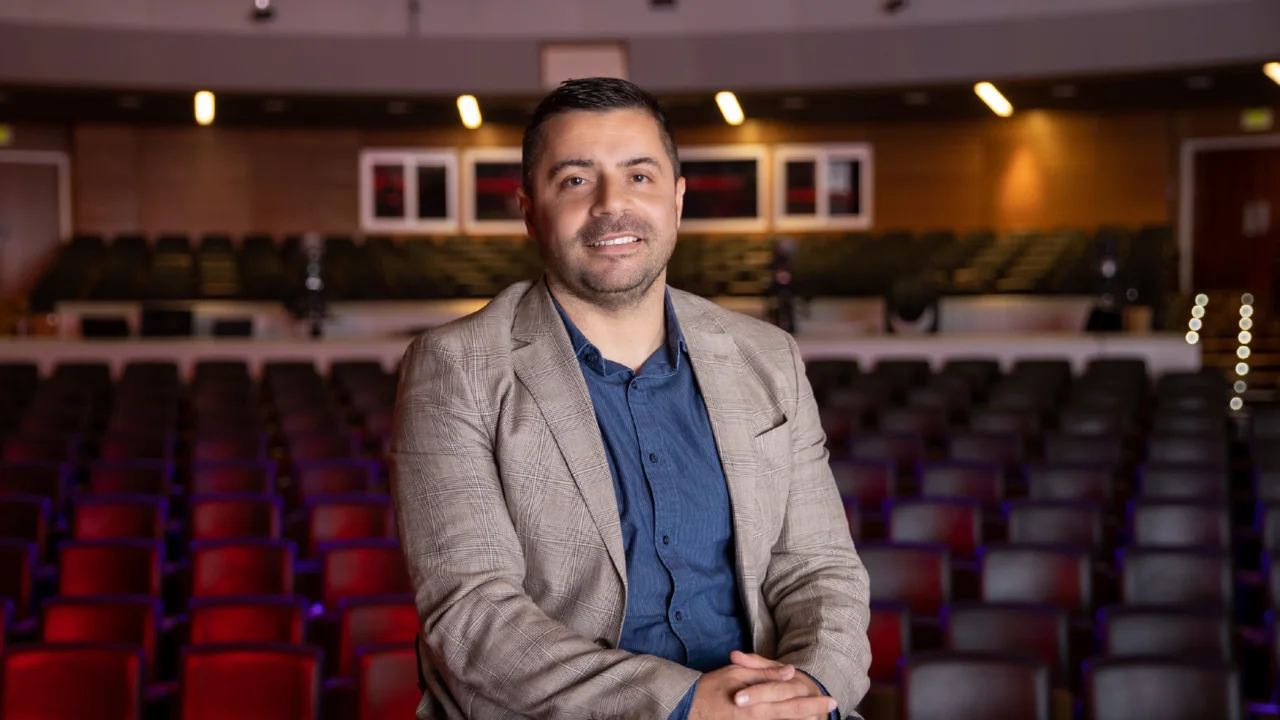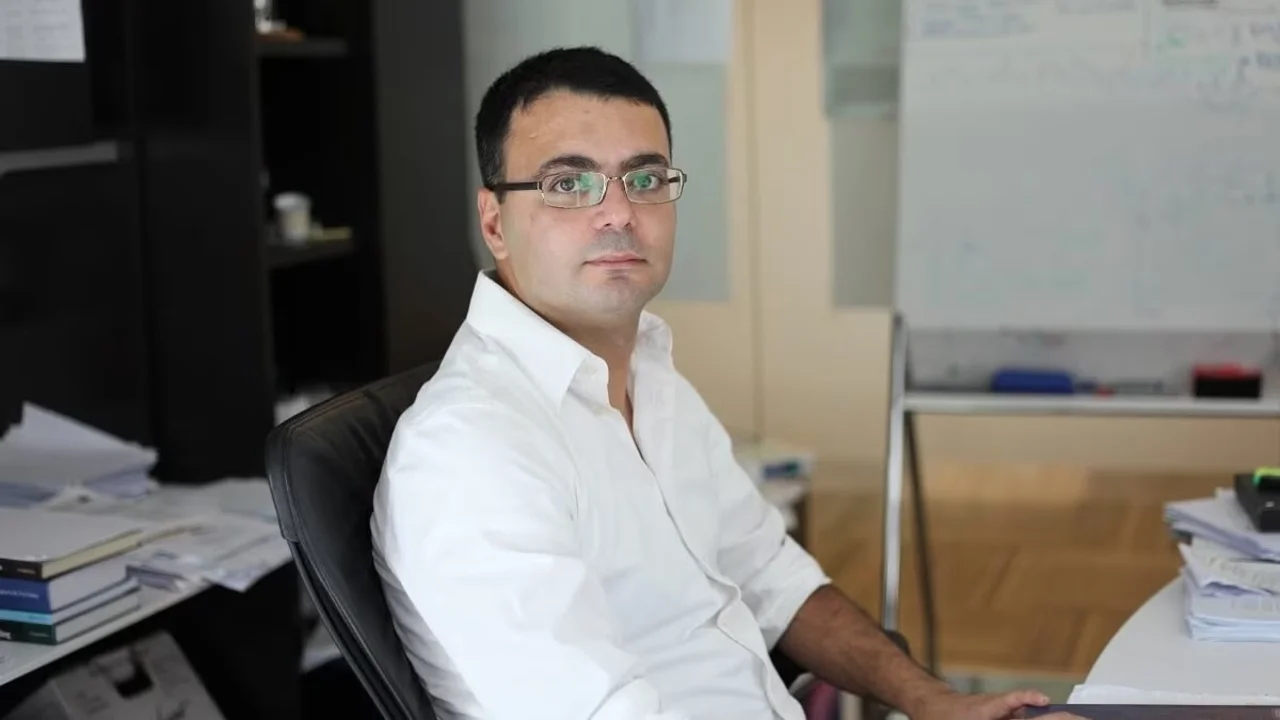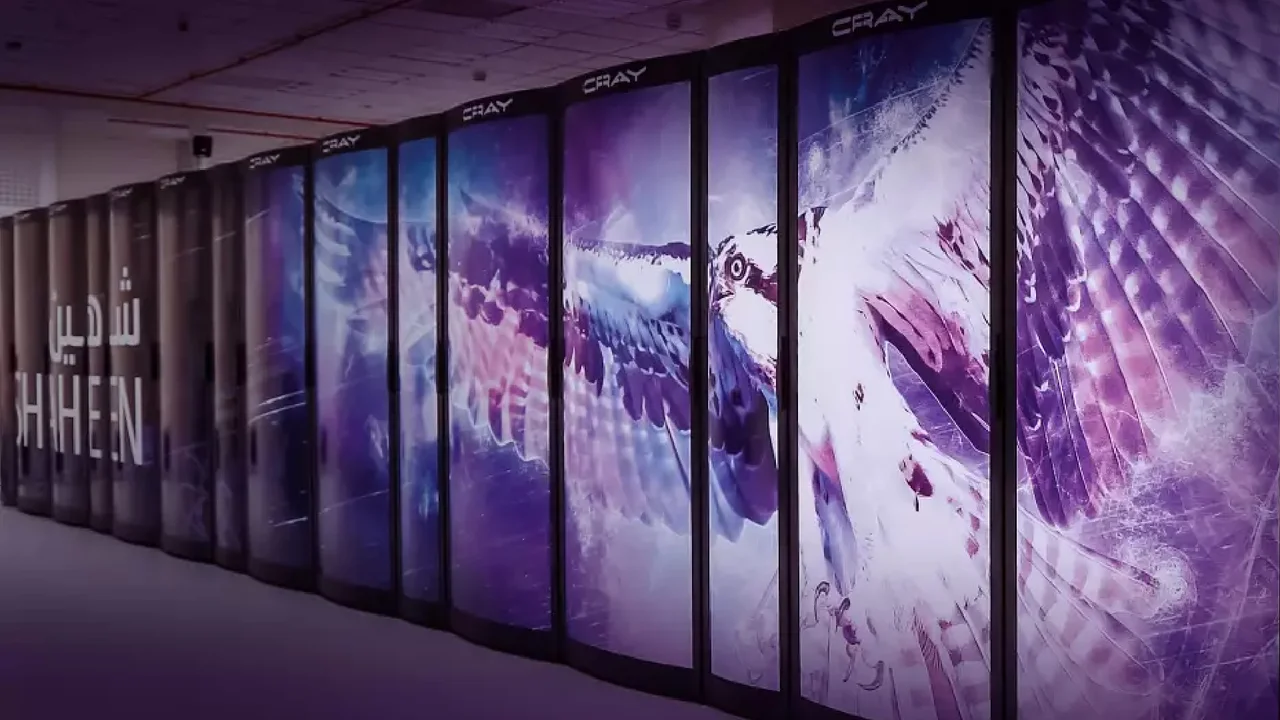
High-Performance Computing and Big Data
KAUST was launched in 2009 with high-performance computing (HPC) in its DNA and placed a globally Top20 supercomputer in the service of its research and education missions. The “Shaheen” supercomputer system has been refreshed twice to provide a Top20 computing environment for the two-thirds of the KAUST faculty that supercompute.
To accelerate scientific discovery and innovation, the University’s Shaheen III serves as a platform for frontier research in modeling and simulation, machine learning and artificial intelligence, big data analytics, and their applications in scientific discovery, engineering design, and policy support.
Shaheen III, one of the most powerful supercomputers in the Middle East, is a game-changer for our HPC researchers. Its immense processing power enables high-resolution modeling in atmospheric and ocean dynamics, aerodynamic engineering, and advanced noninvasive imaging. These capabilities are instrumental in the discovery of petroleum reservoirs, advancing medical imaging, and the nondestructive evaluation of structures.
Furthermore, Shaheen III is instrumental in supporting the development and testing of predictive mathematical models, utilizing a multifaceted approach encompassing traditional simulations, statistical emulation, and machine learning.
With access to state-of-the-art facilities unparalleled at any university, and a dynamic, multidisciplinary research ecosystem, KAUST’s HPC scientists are analyzing vast amounts of data and using their expertise to simulate and solve complex real-world problems.
Their cutting-edge research is leading a renaissance of computational techniques exploiting optimal algorithms data sparsity that provides case-based accuracy with less energy. Together, they are furthering the scientific ambitions of KAUST and Saudi Arabia as they explore, support and advance bioinformatics, climate science, catalysis, carbon sequestration, renewable energies, data science and life sciences for the betterment of humanity.
Related People
Biography
David Keyes is a professor in the Applied Mathematics and Computational Sciences, Computer Science, and Mechanical Engineering programs. He served as a founding dean of the Mathematical and Computer Sciences and Engineering Division from 2009 to 2012 and as the director of the strategic initiative and ultimately the Research Center in Extreme Computing from 2013 to 2024. He is also an adjunct professor and former Fu Foundation Chair Professor of Applied Physics and Applied Mathematics at Columbia University, and a faculty affiliate of several laboratories of the U.S. Department of Energy.
Professor Keyes is Fellow of the Society for Industrial and Applied Mathematics (SIAM), the American Mathematical Society (AMS), and of the American Association for the Advancement of Science (AAAS). He is the recipient of the SIAM Prize for Distinguished Service to the Profession (2011), the Distinguished Faculty Teaching Award of Columbia University (2008), the Sidney Fernbach Award of IEEE Computer Society (2007), and the ACM Gordon Bell Prize (1999), and the Prize for Teaching Excellence in the Natural Sciences of Yale University (1991) .
Keyes graduated summa cum laude in Aerospace and Mechanical Sciences with a certificate in Engineering Physics from Princeton in 1978 and earned a doctorate in Applied Mathematics from Harvard in 1984. He was a Research Associate in Computer Science at Yale University 1984-1985, and has had decadal research appointments at the Institute for Computer Applications in Science and Engineering (ICASE), NASA-Langley Research Center, and the Institute for Scientific Computing Research (ISCR), Lawrence Livermore National Laboratory.
Research Interests
Keyes' research lies at the algorithmic interface between parallel computing and the numerical analysis of partial differential equations (PDEs), with a focus on scalable implicit solvers and nonlinear and linear preconditioning for large-scale applications in energy and environmental science on emerging for power-austere emerging architectures.
Target applications demand high performance because of high resolution, high dimension, and high fidelity physical models and/or the “multi-solve” requirements of optimization, control, sensitivity analysis, inverse problems, data assimilation or uncertainty quantification. Newton-Krylov-Schwarz (NKS, 1994) and Additive Schwarz Preconditioned Inexact Newton (ASPIN, 2002) are methods he co-created and popularized. He also focuses on the discovery of data sparsity and the exploitation of hierarchy in large-scale systems involving dense covariance and kernel matrices in statistics, genomics, data science, and machine learning.
Charters for his research are the International Exascale Software Project (IESP, 2011) and the Science-based Case for Large Scale Simulation (SCaLeS, 2001/2003) reports.
Education
Biography
George Turkiyyah is a research professor in the Applied Mathematics and Computational Science program at KAUST.
Before joining KAUST, he was a professor at the American University of Beirut, where he also served as chair of the computer science department. Prior to joining AUB, he was an assistant professor and later an associate professor at the University of Washington in Seattle.
Turkiyyah earned a Bachelor of Engineering (B.Eng.) in civil and environmental engineering from the American University of Beirut, and both a Master of Science (M.S.) and a Doctor of Philosophy (Ph.D.) in computer-aided engineering from Carnegie Mellon University.
Turkiyyah has been involved in the development of knowledge-based AI systems that have been deployed in practice. He has also developed several widely used simulation codes for high-resolution finite element engineering applications. His work on fast methods for surgical simulation has led to a software startup and several patents.
His research has earned several awards, including the Transportation Research Board K.B. Woods Award in 2003 for best paper in design and construction, the Best Presentation Award at the ACM Solid and Physical Modeling Conference in 2007, and the Best Poster Award at the Medicine Meets Virtual Reality Conference in 2006.
He chaired the 2003 ASCE Engineering Mechanics Conference and co-chaired the Eighth ACM Symposium on Solid Modeling and Applications (SPM) in 2003. He is a member of ACM and the Society for Industrial and Applied Mathematics (SIAM).
Research Interests
Professor Turkiyyah’s current research interests include hierarchically low-rank matrix algorithms and their HPC/GPU implementations to support the development of simulation models at extreme scales.
His work addresses various applications of hierarchical matrix technology, including PDE-constrained optimization, high-dimensional statistics problems, multi-dimensional fractional diffusion problems, scientific data compression and second-order methods for training neural networks.
Education
Biography
Omar Knio received his Ph.D. in mechanical engineering in 1990 from the Massachusetts Institute of Technology (MIT) in the United States. He held a postdoctoral associate position at MIT before joining the mechanical engineering faculty at Johns Hopkins University in 1991. In 2011, he joined the Department of Mechanical Engineering and Materials Science at Duke University, where he also served as associate director of the Center for Material Genomics. In 2012, he was named the Edmund T. Pratt, Jr. Professor of Mechanical Engineering and Materials Science at Duke.
In 2013, Knio joined the Applied Mathematics and Computational Sciences (AMCS) Program at KAUST, where he also served as deputy director of the SRI Center for Uncertainty Quantification in Computational Science and Engineering and as the interim dean of the Computer, Electrical and Mathematical Sciences and Engineering (CEMSE) Division. In 2024, he was appointed associate vice president of National Partnerships, Engagement and Academic Liaison, at the KAUST National Transformation Institute.
He is a founding associate editor of the SIAM/ASA Journal on Uncertainty Quantification and currently serves on the editorial boards of the International Journal for Uncertainty Quantification and Theoretical and Computational Fluid Dynamics.
Knio has received several awards, including the Associated Western Universities Faculty Fellowship Award in 1996, the Friedrich Wilhelm Bessel Award in 2003, the R&D 100 Award in 2005, the Distinguished Alumnus Award from the American University of Beirut in 2005, and the Abdul-Hameed Shoman Award for Arab Researchers in 2019.
Research Interests
Professor Knio’s research interests include uncertainty quantification, Bayesian inference, combustion, oceanic and atmospheric flows, physical acoustics, energetic materials, microfluidic devices, renewable energy systems, high-performance computing, optimization under uncertainty, and data-enabled predictive science.
Education
Biography
Professor Matteo Parsani is an associate professor of Applied Mathematics and Computational Sciences at KAUST. He is also affiliated with the Mechanical Engineering Program and leads the Advanced Algorithms and Simulations Lab (AANSLab).
Hi research leverages self-adaptive algorithms, high-performance computing, and the judicious use of machine learning to enhance simulation accuracy, efficiency and reliability in real-world applications. Drawing on experience from NASA Langley Research Center and other leading research institutions, he specializes in computational fluid dynamics, modeling, and efficient high-fidelity numerical simulations.
Professor Parsani's research advances a broad spectrum of technologies, including next-generation aerospace technologies and urban air mobility for cognitive cities, noise reduction for sustainable air travel, hypersonic flight, and aerodynamics of F1 and electric vehicles. His research extends to computational modeling in biomedical science, applying simulations to study biological systems in cancer treatments and the flow dynamics of reef environments for intervention-based coral reef growth recovery.
Parsani's high-performance computational solvers and libraries are utilized to tackle complex engineering challenges in collaboration with industry partners such as Boeing, NASA’s Langley Research Center (LaRC), the McLaren F1 racing team, Airbus, E1 Series and Lucid Motors.
He earned his Master’s in Aerospace Engineering from Politecnico di Milano, Italy (2006), and his Ph.D. in Mechanical Engineering from Vrije Universiteit, Belgium (2010). He joined KAUST as a postdoctoral fellow in 2010 before pursuing a fellowship at NASA Langley Research Center. In 2014, he joined KAUST as a professor.
Beyond academia, Professor Matteo is a former soccer player and activist for people with disabilities. In December 2023, he embarked on an unprecedented coast-to-coast hand-bike journey across the Kingdom of Saudi Arabia to promote physical activities, sports, and awareness about people with disabilities. He covered nearly 150 kilometers daily on a hand-bike, totaling over 3,100 kilometers in about 22 days. This challenge was once deemed impossible for someone who has been living with an incomplete spinal injury since 2017.
Research Interests
Professor Matteo Parsani’s research interests are related to designing and implementing novel, robust and scalable numerical methods. Specifically, unstructured grids for hyperbolic and mixed hyperbolic/parabolic partial differential equations.
A core focus of Parsani’s research is on efficient and robust algorithms for the aerodynamic and aeroacoustic design of aerospace vehicles. Additionally, he studies non-classical gas-dynamic phenomena for energy conversion systems and the investigation of biological flow in cancer treatments.
His current research examines the stability and efficiency of spatial and temporal discretizations and structure-preserving methods that can mimic results from the continuous to the discrete level. A number of application domains are currently driving his research, including computational aerodynamics, dense gas flow simulations, and computational aeroacoustics.
Education
Biography
Professor Hoteit is a founding faculty member at KAUST (2009) and a professor of earth science and engineering. He is recognized for advancing climate and environmental modeling, remote sensing, Red Sea eddy dynamics, and modern data assimilation and modeling techniques. Before joining KAUST, he was a research scientist at the Scripps Institution of Oceanography, focusing on atmosphere and ocean circulation modeling.
Hoteit currently directs the Climate Change Center, a national initiative under the National Center for Meteorology funded by the Ministry of Environment, Water and Agriculture, and the Saudi Aramco Marine Environment Research Center at KAUST, supporting large-scale climate and environmental applications of national and global significance. Professor Hoteit and his team develop integrated, data-driven modeling systems to analyze and predict atmospheric and oceanic circulation and climate variability across the Arabian Peninsula.
He received the Kuwait Prize in Fundamental Sciences in 2020 and serves as an associate editor for multiple journals in his field.
Research Interests
Professor Hoteit’s research focuses on integrating dynamical models with observations to simulate, analyze and predict geophysical fluid systems. He develops and applies oceanic and atmospheric models, along with ensemble data assimilation, inverse methods, and uncertainty quantification, for large-scale geophysical applications. His current work builds integrated modeling and forecasting systems for the Arabian Peninsula, with an emphasis on the Red Sea and Arabian Gulf, to study circulation, variability, air-sea interactions and their influence on ecosystem productivity.
The group links these physical insights to environmental management and policy by translating predictions into actionable indicators for marine and coastal systems. The team also leverages advanced artificial intelligence to enhance forecasting, improve model parameterizations and accelerate workflows across applications in marine and terrestrial ecosystems and renewable energy.
